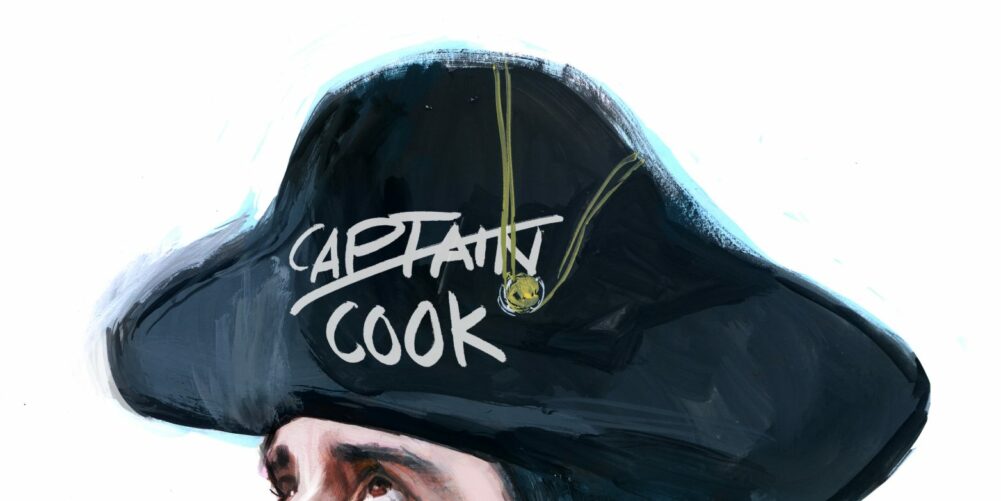It’s not easy being a leader, a thought which doubtless occurred to the other Captain Cook when he was being lightly sautéed in an Hawaiian islanders’ cooking pot.
His resignation speech might have been slightly different – “eh oop” (he was a Yorkie don’t forget) “it doesn’t look like many of this lot have gone for the vegetarian option”, but both of them knew when their time was up.
At least Alastair got to choose for himself when he’d finally had enough. The crunch may have come when he was trying to take a quiet nap at first slip, dreaming about the flight home and a couple of blissful days alone with his thoughts in the lambing shed, only to be rudely interrupted by the boy Root jabbing him in the ribs and saying: “Cor blimey, skip. Any more bright ideas about how to bowl to this bloke Kohli?”
Announcing your own departure as England captain isn’t a luxury afforded to everyone, and in Ian Botham’s case, even when you think it is, you end up being gazumped. “I quit,” said his Beefyness at Lord’s in 1981. “That’s kind of him,” said Chairman of Selectors Peter May. “But I’ve already fired him.”
The man to whom Cook tendered his resignation, Andrew Strauss, knew just what it was like to realise you could no longer carry on as England captain, owing to the dark thoughts continuously buzzing around in your head.
Which, in Strauss’ case, involved being unable to set a proper field for his bowlers because his mind was pre-occupied with devising plans to have Kevin Pietersen hi-jacked, and dumped on an un-inhabited Pacific island with just a few basic essentials.
Such as a full-length mirror, some tattooing ink, and a pair of hallmarked silver ear studs.
It’s just the way it is with England captains. It’s like (and we’re not referring specifically to Andrew Flintoff here) hiring a pedalo. At some stage you either pedal it back to shore and say: “Here you are mate, I’ve had enough.” Or, if you’re still out there when you shouldn’t be, someone will shout at you through a loudspeaker. “Oi! Number 1! Come in. Your time’s up!”
I remember Graham Gooch packing it in after the Ashes Test at Headingley in 1993, and looking happy (or as happy as Gooch ever looked) to be shot of it. The job only occasionally allowed him to give an outing to his naturally dry wit, one example of which came during a period when England were experimenting with their slip cordon after a spate of dropped catches. On the day before the Test, Gooch was asked whether he’d decided where to place his slip fielders, to which he replied – for once allowing himself a mischievous smile – “well, I thought I’d put them next to the wicketkeeper.”
Eventually, though, he got worn down by losing to Australia, (“farting against thunder” was how he described his Ashes experiences) which prompted him to pass on the mantle of getting stuffed by the Aussies to Michael Atherton, whose biggest achievement as captain was to make his lugubrious predecessor look like a one-man song and dance act.
Athers was at his grumpiest on the 1996 tour to Zimbabwe, when England failed to win a match, he could barely score a run, and the Press wound him up even more by going off to play golf every morning and turning up late to matches.
Me and Peter Hayter would regularly halve a hole in 10, usually 10 more than Atherton would score opening, and when we kept arriving – golf clubs slung over our shoulders – just in time to see him trudging back to the pavilion, he made his displeasure fairly well known.
Another factor which shortened Athers’ life expectancy in the job was the fact his relationship with Raymond Illingworth spectacularly failed to bridge the generation gap.
“Too bloody old,” Atherton would occasionally blurt out on the subject of his chairman, feeling a bit like a modern military general being lectured on tactics by Field Marshall Haig, while Illingworth considered Atherton the equivalent of a surly teenager who wouldn’t amount to anything unless he paid more attention to wise old birds like himself.
The most high-profile ending of a captaincy in recent times was, of course, that of Mike Gatting, following newspaper allegations that went on after dark at a Leicestershire hotel during the Trent Bridge Test of 1988.
I was having breakfast with the Daily Express’ Colin Bateman in a Swansea hotel the morning after that Test, ahead of a Benson & Hedges knockout game, and Colin was reading the back page of The Sun. “Blooming ’eck,” exclaimed Bateman. “They’ve certainly given England some stick this morning.”
“If I were you,” I said, when I finally managed to control the bouts of choking on my corn flakes “I’d turn the paper around. It gets a bit worse on the front page.”
‘England Captain In Late Night Hotel Romp’ ran the headline, or something similar, at which point into the breakfast room breezed England manager Micky Stewart, who was in Swansea to perform the Man of the Match adjudication. “Morning lads,” said Micky. “All well?” “Er, fine thanks Micky,” came the reply. “But maybe,” (handing him the newspaper) “you might care to look at this.”
It’s not the only time I’ve seen a human being impersonating a goldfish – eyes bulging, and mouth opening and closing with no recognisable sound coming out – but it was certainly the most impressive example. Instead of a taxi to the ground it was a fast car to Lord’s and bye bye Gatt.
That’s the trouble with being England captain. You’re always under the spotlight. So why not give the job to someone for whom the spotlight is something he actually enjoys? I mean, Cook’s departure has already prompted KP to start tweeting his availability, and if there are any rifts and factions in the dressing room, who better to smooth things over and restore the all-for-one team ethic?
All he asks in return – and apologies to David Beckham for being pipped to the honour yet again – is a trip to the Palace for Her Majesty to tap her sword lightly upon the shoulders (especially the one with the three lions tattooed on it) and announce, to the cheers of a grateful nation: “Arise, Sir Kev.”
This piece originally featured in The Cricket Paper, February 10 2017
Subscribe to the digital edition of The Cricket Paper here












